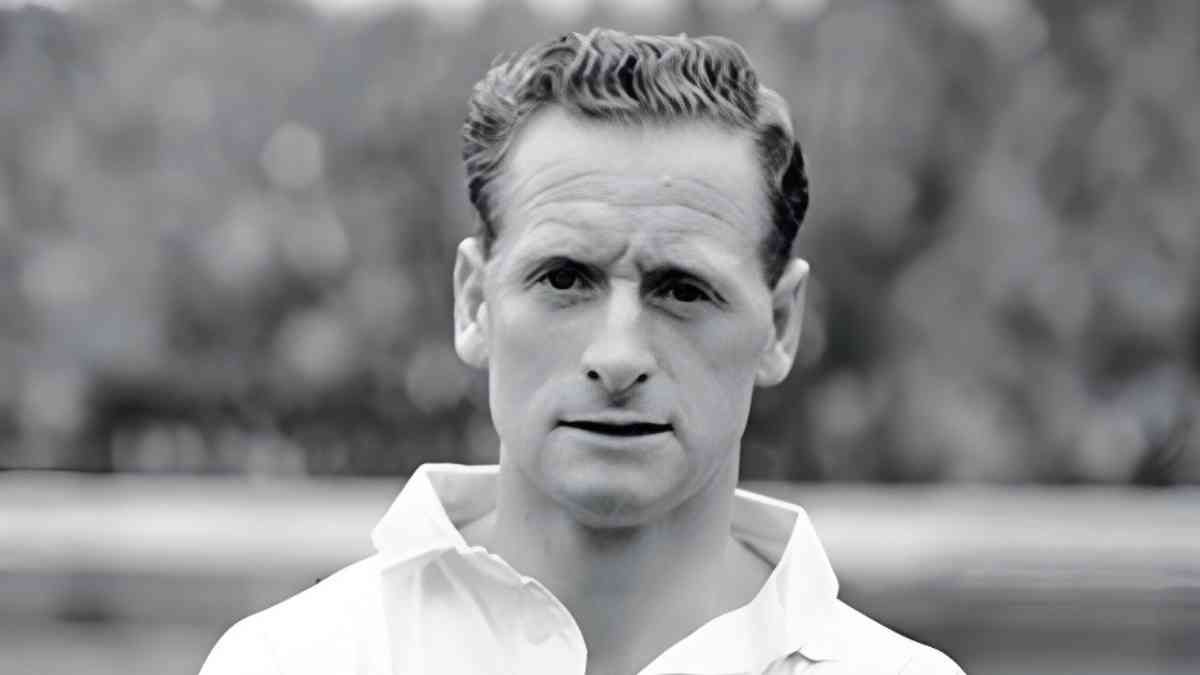Sir Tom Finney: The Gentle Genius Who Redefined English Football

In the rich tapestry of English football history, few names resonate as deeply as Sir Tom Finney. Often hailed as the epitome of sportsmanship and loyalty, Finney’s career was a masterclass in consistency, humility, and unparalleled skill. Born and raised in Preston, his lifelong dedication to his hometown club and country remains an enduring symbol of football at its finest.
Early Life and Humble Beginnings
Tom Finney was born on April 5, 1922, in Preston, Lancashire. He grew up in modest circumstances, just a short distance from Deepdale, the home ground of Preston North End. From a young age, Finney showed a love for football, often kicking a ball around the cobbled streets with his friends. Despite early health issues and a slight frame, his passion for the game never waned.
At his father’s insistence, Tom trained as a plumber, a trade he continued even after becoming a professional footballer. This down-to-earth occupation earned him the affectionate nickname “The Preston Plumber,” which followed him throughout his career. His grounded nature and dedication to both his trade and sport endeared him to fans and peers alike.
Wartime Service and Interrupted Beginnings
Finney’s professional debut was delayed by the outbreak of World War II. Like many young men of his generation, he joined the British Army, serving in the Royal Armoured Corps. He saw action in Egypt and Italy, playing football whenever possible for Army teams. His time in the military tested his resilience but also allowed him to develop leadership and discipline—traits that would shine on the pitch.
Club Career: Loyalty to Preston North End
When professional football resumed after the war, Tom Finney signed with Preston North End in 1946. What followed was a glittering 14-year career spent entirely with his boyhood club. In an era where financial temptation often lured players abroad, Finney’s loyalty was unshakeable. Despite a lucrative offer from Palermo in 1952, which would have made him one of the world’s highest-paid footballers, he turned it down, choosing instead to remain in England.
During his time at Preston, Finney made 433 league appearances and scored 187 goals. His technical ability, vision, and dribbling prowess made him a constant threat to defenders. He played as an outside right but was versatile enough to slot into multiple attacking roles. His understanding with teammate Tommy Thompson in the 1956–57 season led to a combined 56 goals, a testament to his unselfish style of play.
International Brilliance with England
Finney’s brilliance was not confined to club football. He made his England debut on September 28, 1946, against Northern Ireland, scoring in a 7–2 victory. Over the next twelve years, he earned 76 caps and scored 30 goals for the national team.
He represented England in three FIFA World Cups—1950, 1954, and 1958—bringing grace and dignity to the international stage. Despite the national team’s mixed fortunes during his tenure, Finney’s individual performances were rarely anything less than exceptional.
The Footballer’s Footballer
What set Sir Tom Finney apart was not just his ability but his character. On the pitch, he was a magician with the ball—gliding past defenders with elegance, executing inch-perfect passes, and scoring with clinical precision. Off the pitch, he was humble, respectful, and utterly devoid of arrogance.
He was the first player to win the Football Writers’ Association Footballer of the Year award twice, in 1954 and 1957. His peers admired him, and even opponents respected him. In an era that could be brutal and unforgiving, Finney played with fairness and integrity.
Memorable Moments and Iconic Images
One of the most iconic photographs in football history features Finney playing during a waterlogged match at Stamford Bridge in 1956. Captured mid-splash, the image symbolizes his commitment to the game regardless of conditions. It was later immortalized in bronze as “The Splash” statue outside the National Football Museum in Preston.
Another unforgettable moment came in 1963, three years after his retirement, when Finney briefly came out of retirement to play for Distillery against Benfica in a European Cup match. Even then, his brilliance was evident.
Post-Retirement Contributions
After hanging up his boots in 1960, Finney remained actively involved in football and his community. He served as a board member for Preston North End and contributed to several charitable causes. His business, a plumbing and electrical firm, continued to flourish, and he remained a familiar and beloved figure in Preston.
Finney also became a prominent advocate for Alzheimer’s awareness following his wife Elsie’s battle with the disease. His commitment to social causes highlighted the same compassion that defined his playing career.
Honours and Recognition
Throughout his life, Sir Tom Finney received numerous accolades. He was awarded the Commander of the Order of the British Empire (CBE) in 1992 and was knighted in 1998 for his services to football. He also received the Freedom of the City of Preston in 1979 and was given an honorary doctorate from Lancaster University in 1988.
Even decades after his retirement, he continued to be a source of inspiration. Modern footballers and managers, from Sir Alex Ferguson to Steven Gerrard, have spoken in awe of Finney’s legacy.
Personal Life and Final Years
Tom Finney married his childhood sweetheart, Elsie Noblett, in 1945. Their marriage, which lasted nearly six decades, was a cornerstone of his personal stability. Together, they had two children and led a quiet, contented life in Preston.
He remained mentally sharp and socially active well into his later years. Sadly, after suffering from various health issues, Sir Tom Finney passed away on February 14, 2014, at the age of 91. His death was met with tributes from around the footballing world. A minute’s silence was held at grounds across the country, and thousands gathered in Preston to pay their respects.
Legacy: More Than Just a Footballer
Sir Tom Finney’s legacy transcends the football field. He represents a bygone era of loyalty, integrity, and pure love for the game. In a time when football is increasingly commercialized, Finney’s story serves as a powerful reminder of what truly matters in sport.
He didn’t chase fame or fortune. Instead, he played for the joy of the game and the pride of his community. Young players can learn much from his example—about skill, yes, but also about humility, respect, and commitment.
Conclusion
Sir Tom Finney was more than just one of the greatest footballers England has ever produced. He was a role model, a gentleman, and a national treasure. His story is not just about goals and caps but about values that resonate far beyond the pitch. In honoring his legacy, we honor the very soul of football.
In every dribble, every pass, and every goal he scored, Sir Tom Finney reminded us what it means to love the beautiful game.



